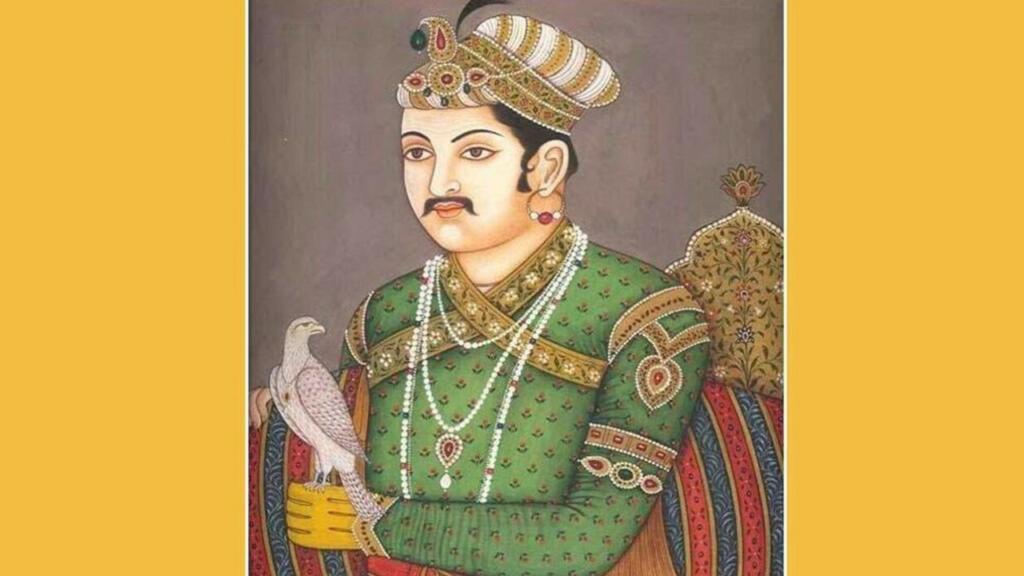Hindu love of Akbar: Why is Akbar considered ‘great’? Is it because Akbar was supposedly secular and made friends with many kingdoms, even taking Hindu princesses into his household? Or is it just another case of selective historical amnesia, where we conveniently forget that he also destroyed Chittor? But in a time where some are elevating lecherous individuals to divine status, can we truly trust the greatness of Akbar? Read on to discover the truth about Akbar – and spoiler alert, he may not have been the ‘Hindu lover’ some make him out to be.
Akbar was weak and coward
Akbar is often depicted as the most dominant and sagacious of the Mughal emperors, who sought to assert his authority over India. However, not many are aware of the methods he employed to achieve this. For instance, during the Battle of Panipat, when Emperor Hemchandra Vikramaditya led his troops, he displayed such remarkable bravery that he could be seen observing the battle from miles away.
Despite being presented with an unconscious Hemu by Bairam Khan, Akbar refrained from personally killing him, leaving the task to his trusted confidante. It’s worth noting that Akbar’s illiteracy further calls into question his true character, revealing him to be nothing more than a timid ruler who lacked the ability to make decisions on his own.
Read more: Yes, Akbar was more Naseeruddin Shah and not even one bit of Hrithik Roshan
Untold truth of Chittor
Akbar is often hailed as a paragon of piety and secularism, but don’t you dare mention that to the folks from Chittor, unless you want a beating that will leave you hunched over for days. When Rana Udai Singh II rebuffed a treaty proposal from the Mughal Empire and dared to mock Akbar, the emperor launched a brutal attack on Chittor to crush him.
Even though Udaipur had since become the capital of Mewar, the Rana’s courtiers advised him to move his family there for safety. This left a strong army and some 30 to 40 thousand civilians in Chittor under the leadership of Jaimal Rathor and Patta.
The Mughal army may have emerged victorious in the battle, but they did so through deceit and cunning – not exactly traits you’d expect from a secular warrior. As Abul Fazl himself wrote, Akbar ordered the capture and subsequent execution of the first 8000 Rajput fighters, along with 40,000 farmers who were slaughtered – including 3000 elderly and children. (Akbarnama, Abul Fazl, translated by H. Babridge).
In the wake of Chittor’s defeat, 12,000 Kshatriyas – including the brave Maharani Jaimal Metavadia – chose to burn themselves alive in a mass ritual suicide known as Jauhar, rather than be taken as prisoners and added to the Mughal harem. Just picture it: 12,000 women leaping into fiery pits, their cries piercing the air.
Despite the depiction of Akbar as a just and pious ruler in ‘Jodha Akbar’, the truth is that he had a notorious eye for women and even passed a decree stating that any woman seen without a veil or hijab at a crossroads should be immediately declared a prostitute! Hardly the actions of a great leader, don’t you think?
To expand his harem, Akbar forced marriages with numerous Hindu princesses, but never allowed any Mughal women to marry a Hindu. In fact, during his reign alone, a staggering 38 Rajput princesses were married off to the Mughal royal family.
Read more: Aurangzeb only directed the film, it was Jalaluddin Mohammad Akbar, who wrote the script
Death of Akbar
If Akbar was truly a just and pious ruler, then why did various groups from Afghans to Rajputs rebel against him? What compelled Maharana Pratap to rise up against him if he was a secular ruler? In reality, Akbar even manipulated Islam to suit his personal desires. As per the Sunni sect, a Muslim can have a maximum of four wives at a time, but Akbar kept more than that.
When the Sunni Qazi tried to intervene, Akbar was outraged and replaced him with a Shia Qazi who permitted unlimited and temporary marriages, known as ‘Mutah’ in Arabic. The Deen-e-Ilahi was also started because Akbar couldn’t get his way.
According to Abul Fazl, Akbar’s harem was quite extensive, with “five thousand women in his harem, separate from his 36 wives.” A tavern was even built near the emperor’s palace, where so many prostitutes gathered that counting them became a challenge.
To take a new girl home, a courtier had to get permission from Akbar, and fights would break out over the most beautiful girls. With such an overwhelming number of women, it’s hard to believe that Akbar had time for anything else.
Read more: Liberal meltdown on Mughals being exterminated from school history
Despite all the atrocities he committed, Akbar’s actions had a strange effect on his fate. He suffered from dysentery and died in agony. However, even after his death, his remains were not allowed to rest in peace. In 1691, a group of Jat farmers raided Agra and dug up Akbar’s grave. They took out his remains and set them on fire. It seems that even in death, Akbar could not escape the consequences of his actions.
Support TFI:
Support us to strengthen the ‘Right’ ideology of cultural nationalism by purchasing the best quality garments from TFI-STORE.COM
